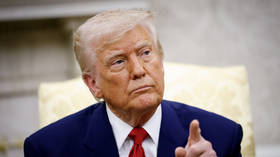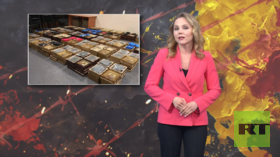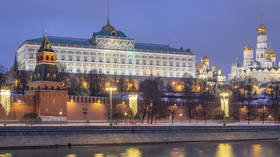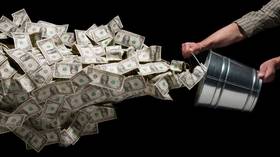US tariffs driving down yuan, not the Chinese government – Jim Rogers
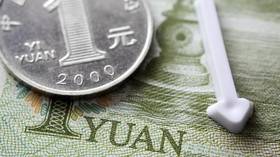
While the US continues to accuse its trade war rival China of currency manipulation, Washington has itself to blame for the recent weakening of the yuan, according to legendary investor Jim Rogers.
“If you put billions of dollars (in Chinese goods) under tariffs, don’t you think it would affect the currency?” Rogers told RT. He added that while the People’s Bank of China actually can have a hand in changing the renminbi exchange rate, the recent course of events is explained by basic economic rules.
“Anybody who knows any basic economics knows that if you hit a huge economy with lots of tariffs it’s gonna have [an] effect on the currency… It’s the way the market works.”
Also on rt.com Global stock markets crash as US trade war with China escalatesThe weaker yuan can actually help Beijing to offset the impact of Washington’s tariffs on China’s exports. As its national currency declines, Chinese goods become cheaper to sell abroad. So, the US fears that it would not be able to sell its own goods while there are plenty of cheaper Chinese products on the market thanks to a weaker yuan.
“It makes American goods more expensive and therefore more difficult for America to sell goods in the world market,” Rogers explained.
However, the falling yuan has a downside, according to Rogers, such as an increase in the cost of living and production as everything China imports becomes more expensive.
The trade conflict between the world’s biggest economies has led to tit-for tat tariffs on billions of dollars of goods. US President Donald Trump has recently added fuel to the fire as he threatened Beijing with an additional 10 percent tariff on the remaining $300 billion of Chinese imports on top of the $250 billion of Chinese goods already taxed at 25 percent.
Also on rt.com Pot calling the kettle black? US accuses China of currency manipulation... but what does that mean?Beijing ordered a halt on purchases of US agricultural exports in response, in a move that could hurt a key Trump constituency, American farmers. Thus, the Chinese government might be planning to hit back at where Trump’s main voters are, and then just sit and wait until his term is over, Rogers noted.
No one ever wins in a trade war, and it concerns not only the conflicting sides but the entire global financial market, according to Rogers. “No trade war in history has never been good for anybody. Even if somebody thinks he won, he didn’t, he lost. Everybody loses,” Rogers told RT.
For more stories on economy & finance visit RT's business section




